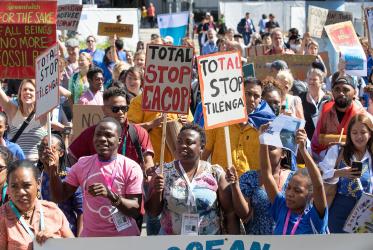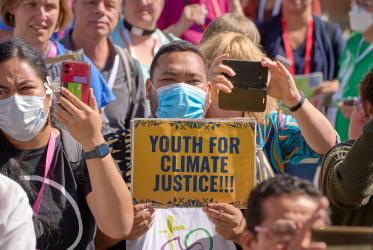Displaying 21 - 40 of 144
Zur Verwandlung aufgerufen Ökumenische Diakonie
15 February 2023
Pandemic and pedagogy: what are the valuable lessons?
21 December 2022
La respuesta a las necesidades humanitarias en Ucrania
27 September 2022
Ukraine: Auf humanitäre Bedürfnisse reagieren
27 September 2022
Répondre aux besoins humanitaires en Ukraine
27 September 2022












